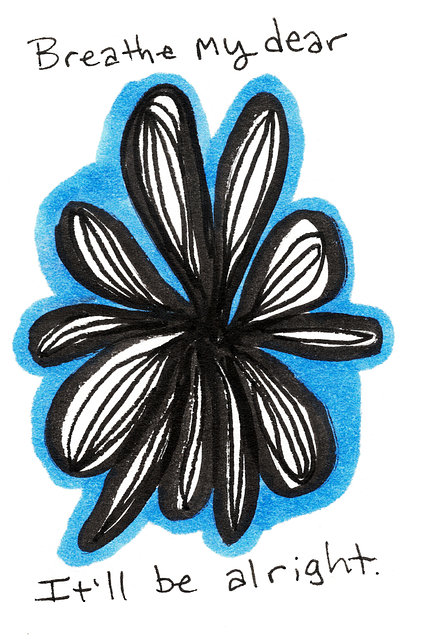Denver Young Adults Therapy prioritizes harm minimization through individualized risk assessments, addressing academic pressures, peer issues, and identity formation challenges. Therapists evaluate mental health conditions, past traumas, and current stressors, focusing on anxiety relief. Self-awareness exercises help clients identify triggers and develop coping mechanisms, fostering a supportive environment for personal growth. The therapy sessions promote resilience, well-being, and positive thinking, with continuous updates based on societal changes and research to ensure effective, tailored care.
Risk assessment and harm minimization planning are vital components of providing safe and effective therapy, especially in settings like Denver Young Adults Therapy. This article delves into these critical processes, guiding therapists through identifying potential hazards, implementing proactive strategies, and continuously evaluating plans for long-term success. By understanding risk assessment, practitioners can create therapeutic environments that foster growth while minimizing potential harms unique to young adults in Denver.
- Understanding Risk Assessment: Identifying Potential Hazards in Denver Young Adults Therapy
- Implementing Harm Minimization Strategies: A Proactive Approach for Safe Therapy Environments
- Continuous Evaluation and Adaptation: Ensuring Long-term Success in Risk Management Planning
Understanding Risk Assessment: Identifying Potential Hazards in Denver Young Adults Therapy

Understanding Risk Assessment is a foundational step in Denver Young Adults Therapy. It involves meticulously scanning and identifying potential hazards that may impede emotional healing processes. In this context, therapists must consider various factors unique to young adults, such as academic pressures, peer relationships, and identity formation challenges. By assessing these risks, therapists can tailor interventions effectively, ensuring the safety and well-being of their clients.
The process often includes evaluating existing mental health conditions, past traumatic experiences, and current life stressors. For instance, anxiety relief is a significant focus in Denver Young Adults Therapy, as young adults navigate complex emotional landscapes. Self-awareness exercises play a crucial role in this assessment, helping individuals recognize triggers and develop coping mechanisms. Through these methods, therapists can proactively plan for harm minimization, fostering a supportive environment conducive to personal growth.
Implementing Harm Minimization Strategies: A Proactive Approach for Safe Therapy Environments

Implementing harm minimization strategies is a proactive approach that Denver Young Adults Therapy employs to create safe and supportive environments for all clients. By focusing on preventing potential risks, we empower young adults to develop inner strength and cultivate positive thinking. Our strategies involve comprehensive risk assessments tailored to each individual’s unique needs and challenges, ensuring that any possible harm is identified and addressed early.
Through these methods, our therapy sessions become spaces where confidence boosting becomes a natural outcome of a structured yet nurturing atmosphere. By proactively managing risks, we allow clients to fully engage in their therapeutic journey, fostering personal growth and resilience. This proactive approach not only enhances the effectiveness of our therapy programs but also underscores our commitment to each client’s well-being and success.
Continuous Evaluation and Adaptation: Ensuring Long-term Success in Risk Management Planning

At Denver Young Adults Therapy, continuous evaluation and adaptation are cornerstone principles of our risk assessment and harm minimization planning. We understand that mental health landscapes evolve rapidly, influenced by societal shifts, new research insights, and individual growth. Therefore, our team consistently reviews and updates risk management strategies to ensure their relevance and effectiveness. This dynamic approach allows us to anticipate emerging challenges and incorporate the latest evidence-based practices, like anxiety relief communication strategies, into our care plans.
By fostering a culture of continuous improvement, we not only strengthen our ability to prevent burnout among healthcare providers but also enhance the overall quality of services rendered. This proactive stance is particularly vital in addressing evolving mental health concerns among young adults, ensuring that our interventions remain timely and tailored to their unique needs.
Risk assessment and harm minimization planning are essential components of providing a safe and effective therapeutic environment for Denver Young Adults Therapy. By identifying potential hazards, implementing proactive strategies, and continuously evaluating plans, therapists can ensure long-term success in managing risks and fostering a supportive space for clients’ well-being. These measures are vital to the overall success and reputation of any therapy practice.









